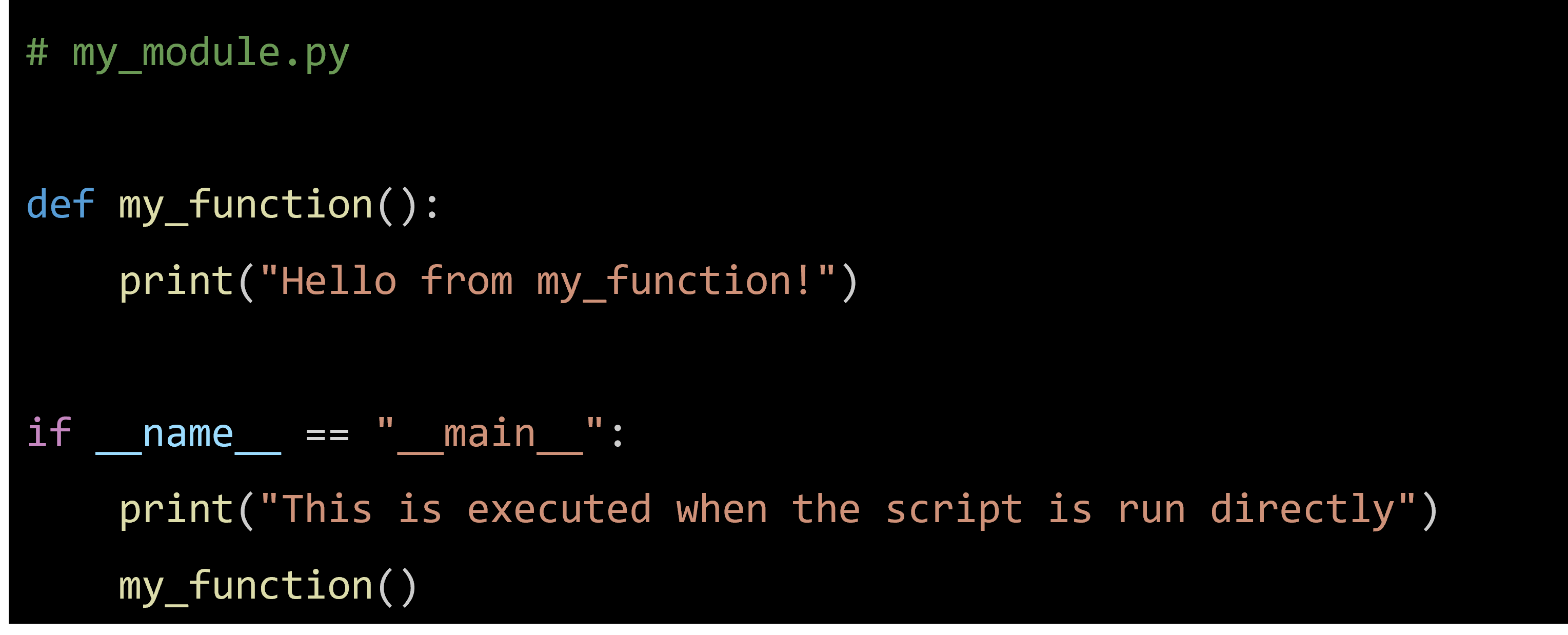The if __name__ == "__main__": statement is a common construct in Python programming. It is used to ensure that certain code is only executed when the script is run directly, and not when it is imported as a module in another script.
What is __name__?
In Python, __name__ is a special built-in variable that represents the name of the module. Depending on how the module is being used, the value of __name__ changes:
- If the module is being run directly (i.e., you run the script from the command line or an IDE), __name__ is set to "__main__".
- If the module is being imported into another module, __name__ is set to the module's name.
Why Use if __name__ == "__main__":?
This construct allows you to control the execution of code based on whether the module is run as a standalone script or imported as a module. It's particularly useful for:
- Running Tests or Example Code:
- You can include tests or example usage of your functions in the same file, and they will only be executed if the file is run directly.
- Avoiding Side Effects:
- When a module is imported, you usually don't want certain parts of the code (like script-specific setup, user prompts, or other side effects) to run automatically.
How Does It Work?
Here's a basic example to illustrate the use of if __name__ == "__main__"::

- Scenario 1: Running the script directly
If you run the my_module.py script in your Command Prompt or Terminal:
| > python my_module.py |
The output will be:
| This is executed when the script is run directly Hello from my_function! |
In this scenario, since the script is run directly, the condition if __name__ == "__main__": evaluates to True, and the code inside the block is executed.
Scenario 2: Importing the module
If you import the my_module.py module from another script and call the function using the module name as follows:

The output will be:
![]()
In this scenario, when my_module is imported, the condition if __name__ == "__main__": evaluates to False, so the code inside the block is not executed. Only my_function() is called explicitly in another_script.py.